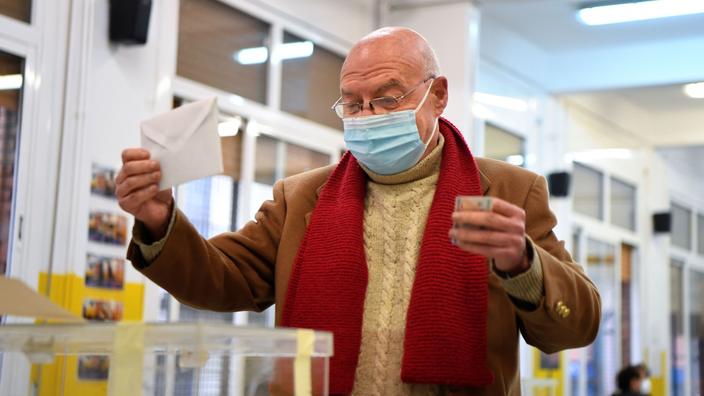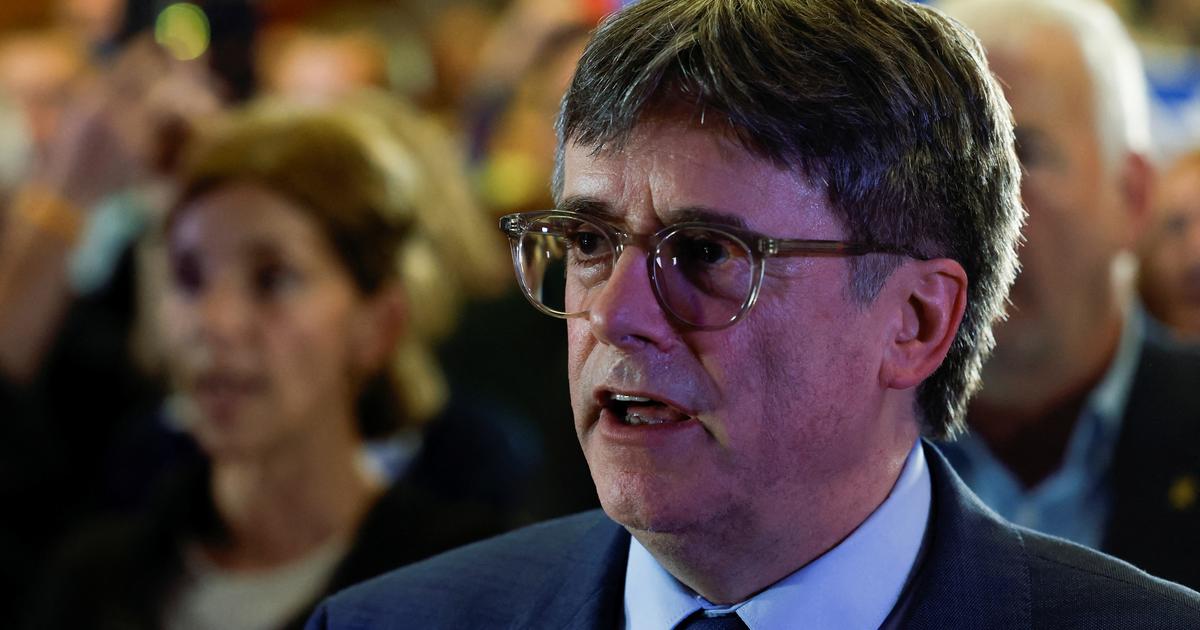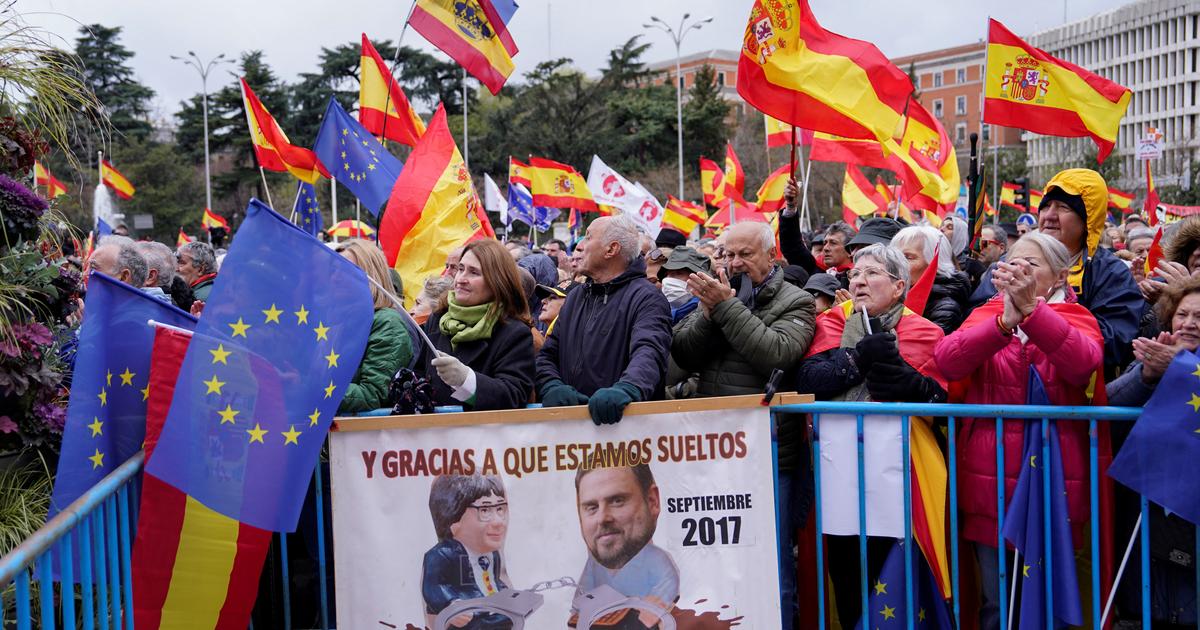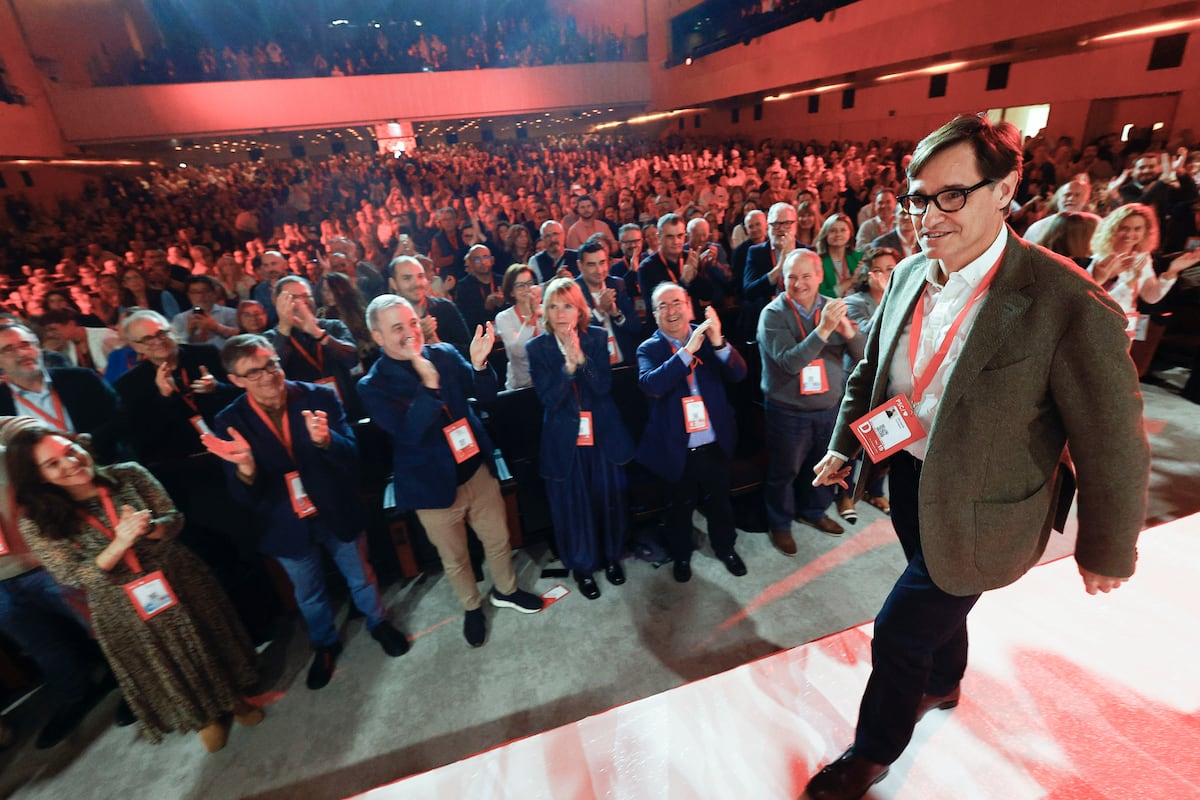In the midst of the epidemic, voters in Catalonia began voting on Sunday for a ballot whose stake is whether the Socialists, at the head of the Spanish government, will manage to remove the separatists from regional power, more than three years after an attempt of aborted secession.
Read also: Elections: Salvador Illa, Pedro Sanchez's daring bet in Catalonia
Polling stations opened at 9 a.m. (8 a.m. GMT) in this region of northeastern Spain and will close at 8 p.m. (7 p.m. GMT).
Beyond the results, expected around midnight (23H00 GMT), the main unknown of this election relates to the participation, which should be in sharp decline because of the health context in one of the European states hardest hit by the Covid-19 pandemic, despite a slight improvement in recent days.
The Catalans started voting on Sunday.
JOSEP LAGO / AFP
Following the explosion of new cases following the end-of-year celebrations, the regional government had decided to postpone the ballot to the end of May, but the courts intervened to restore the initial date.
The last hour of the vote, from 6:00 p.m. to 7:00 p.m. GMT, will be reserved for people with Covid-19 or in quarantine, an exceptional situation which will require assessors holding offices to wear full protective suits.
Opinion polls predict turnout could drop below 60%, down from around 80% in previous elections in 2017.
Sign of unease among some 5.5 million registered voters, about 35,600 people out of the 82,000 drawn to serve as assessors have asked to be exempted from this obligation.
Although 23,300 requests were accepted, the authorities assure that the ballot can proceed normally.
Three-way battle
This predictable drop in turnout increases the uncertainty of the ballot, polls showing three parties in a pocket handkerchief with just over 20% of the vote: the two main Catalan independence parties - Ensemble pour la Catalogne (JxC) and Gauche Republican of Catalonia (ERC) - which form the current regional government, and the PSC, the Catalan branch of the Spanish Socialist Workers' Party of Prime Minister Pedro Sanchez.
These elections take place a little over three years after the failure of a secession attempt marked by the holding, on October 1, 2017, of a self-determination referendum banned by the courts and which had given rise to very violent police.
Read the file: Independence of Catalonia: the reasons for a historic crisis in Spain
The head of the Catalan government at the time, Carles Puigdemont, is still in exile in Belgium and nine pro-independence leaders were sentenced in 2019 to terms ranging from nine to 13 years in prison.
Determined to break the hold of the separatists on power in Barcelona, Sanchez, who became prime minister after this crisis of 2017, appealed to his former Minister of Health and a leading figure in the fight against Covid-19 in Spain, Salvador Illa, to lead the Socialists to battle.
He even got personally involved in the campaign by participating in several electoral meetings, with the risk that Salvadore Illa's failure would also be perceived as his.
The queue outside a polling station.
JOSEP LAGO / AFP
Even if they win the greatest number of votes, the Socialists will need partners to obtain the absolute majority of 68 deputies (out of a total of 135) in the local parliament, and will have to break up the independence bloc for this.
They are counting on ERC, a party open to dialogue with Madrid and whose support has even enabled the minority government of Mr. Sanchez to have its program voted in Parliament.
But ERC, JxC and three other small formations pledged in writing this week not to contribute "
in any way
" to the formation of a government with Mr. Illa.
A victory for the Socialists on Sunday could therefore prove to be irrelevant, the most likely hypothesis for analysts being the maintenance in power of the current coalition between JxC, a supporter of a hard line vis-à-vis Madrid, and ERC.


/cloudfront-eu-central-1.images.arcpublishing.com/prisa/IIVBXWUM4ZDCBP2YVLKJHDWIFQ.jpg)












